He must be the least known president in the world, tasked with the most difficult mission, one that other heads of the state around world aren’t faced with: Leading a revolutionary government that has vowed to uproot the ruling military dictatorship in Myanmar—one of the most notorious and ruthless regimes on this planet.
Officially, he is an acting president. But he can’t live in a presidential palace; he can’t work in a presidential office, either. Myanmar people have no idea where their president is. He was not elected through a vote but appointed by a legitimate, elected parliamentary body. He was also unknown to most of his fellow countrymen until recently, but they respect him and have embraced him as their head of state.
The government he leads is mostly made up of elected lawmakers from the National League for Democracy (NLD) party, whose government was ousted by the military coup last year, and their ethnic allies. While commanding support from a vast majority of Myanmar people, the government he leads challenges the legitimacy of Myanmar’s ruling military junta, which has committed war crimes and crimes against humanity against the country’s entire population of more than 54 million people.
Meet Duwa Lashi La, the acting president of Myanmar’s National Unity Government (NUG).
Who is Duwa Lashi La?
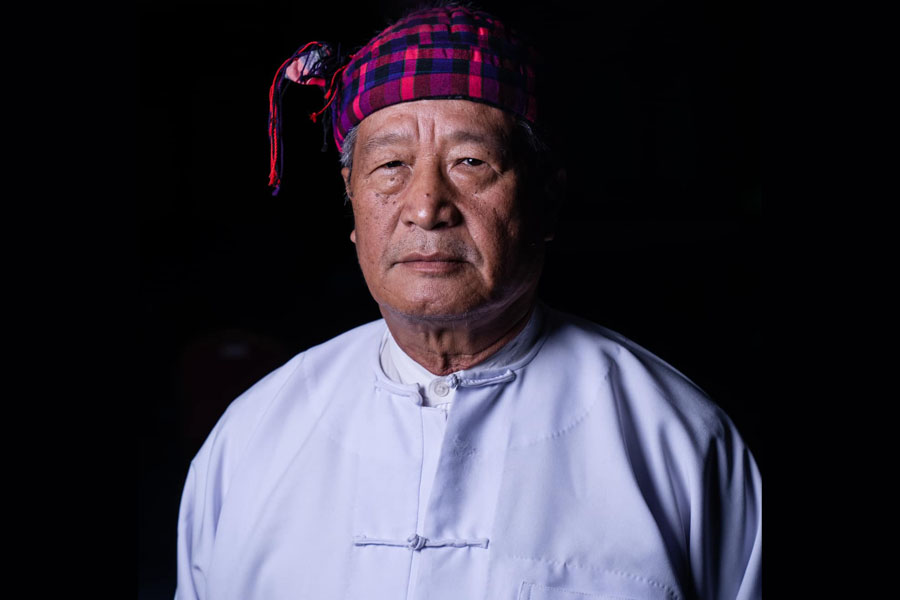
Duwa Lashi La, 72, is ethnic Kachin and a Christian. He was a one-time teacher at a public school in his native Mung Ji Village, northern Shan State. He studied law at Yangon University and worked as a prosecutor and law officer for 18 years. He speaks English, Chinese, Burmese and Shan, in addition to his mother tongue Kachin, and is also well-versed in other Kachin tribal languages.
Since the early 1990s, the father of four has taken the lead in diverse social enterprises and civil society organizations working for community development, education, healthcare, relief and social rehabilitation in conflict-torn areas in Shan and Kachin States.
He served as chairman of the Kachin National Consultative Assembly (also known as WMR), which is reportedly the most authoritative political body in Kachin State, till January 2021. And also for the Kachin Political Interim Coordination Team (KPICT), which was formed by domestic and international Kachin organizations to advocate on behalf of the Kachin people in the wake of the coup.
Taking on the biggest task
Of the various leading roles Duwa Lashi La has played, the biggest of his life—serving as the country’s head of state—was also the most sudden.
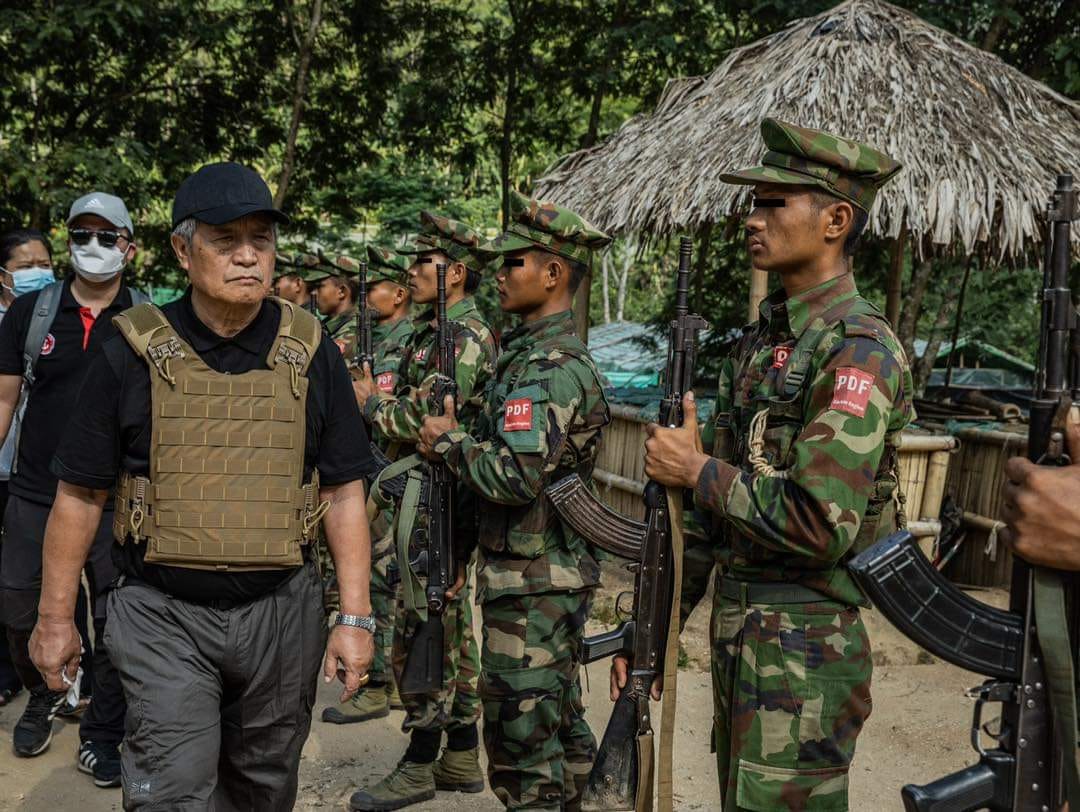
It came at a regular meeting held between KPICT and the Committee Representing Pyidaungsu Hluttaw (CRPH) in early April last year, two months after the coup.
At that time, the CRPH, the legislative body formed by elected representatives to the coup-dissolved parliament, was holding a series of meetings with the country’s ethnic groups and preparing to set up the NUG—an interim coalition government of democratic forces set up to challenge the regime.
The CRPH asked for three nominees for ministerial posts from KPICT at the meeting, and as they continued their discussion on the formation of the new government, the then KPICT chairman Duwa Lashi La gave his opinion on a draft proposal to keep Henry Van Thio, a retired major and vice president of the NLD government, as vice president in the NUG.
Henry Van Thio was reportedly detained during the coup along with other senior members of the ousted civilian government and placed under house arrest but the junta has not filed any charges against him.
Duwa Lashi La’s personal secretary, who requested not to be named, recalled to The Irrawaddy the meeting at which Duwa Lashi La responded, “Since we are making the revolution to bring down tyranny and build a new era, it is good not to include people who were involved in the military, and instead better to choose those with a vision of reform towards democracy and federalism.”
The CRPH agreed on this point and requested that he accept the position instead. The sudden offer was also overwhelmingly backed by KPICT members.
Duwa Lashi La made a phone call to his family telling them to be prepared for the upcoming situation and quickly accepted the offer.
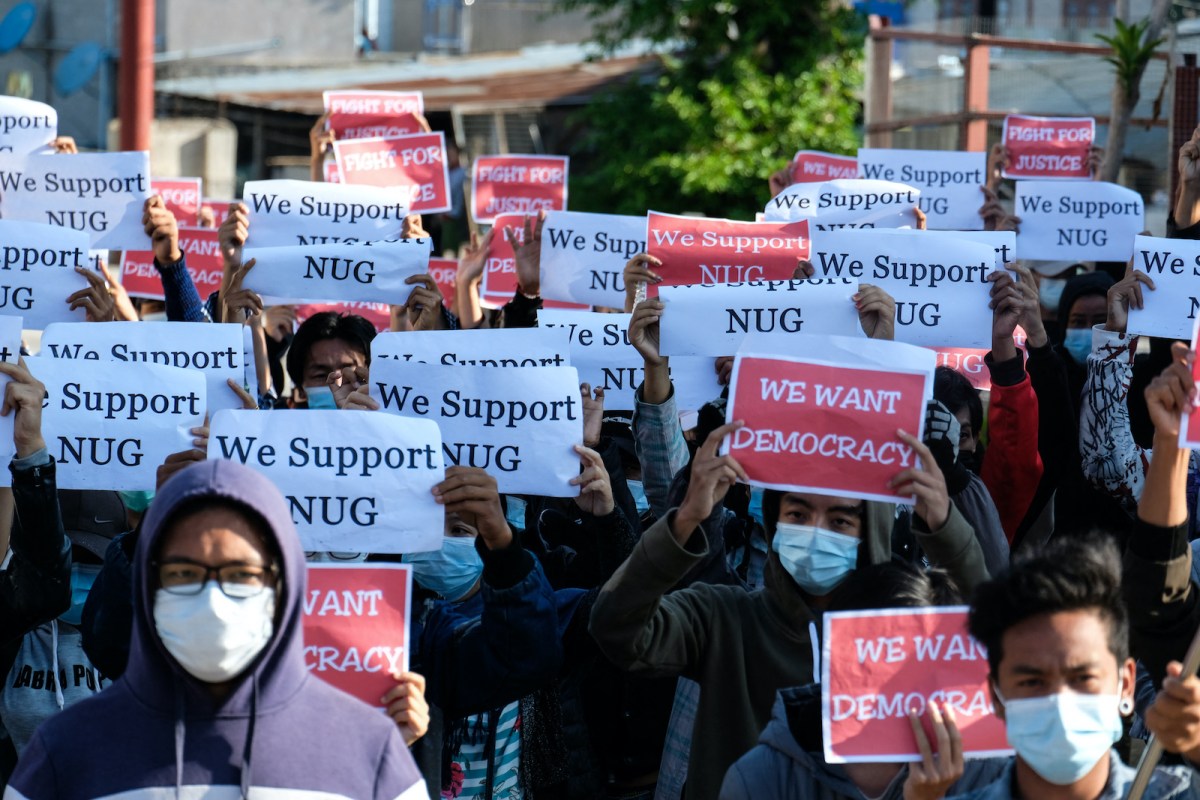
“For him, accepting the role is bearing the responsibility that fell on his shoulders in this revolutionary time,” said his personal secretary, who has known him for years.
The personal secretary also shared that it is Duwa Lashi La’s determination that led him to make the decision immediately. Seeing the third coup in his lifetime, the 72-year-old is determined to free his country of military dictatorship.
Duwa Lashi La was appointed vice president on April 16 but is serving as acting president since Myanmar’s elected president, the NLD’s U Win Myint, has been in junta custody since the first day of the coup.
It was unexpected for many, including Ma May Sabe Phyu, a well-known ethnic Kachin human rights defender. She said she was surprised when she first found out that Duwa Lashi La was the acting president. More significantly, it also marked the first time in the country’s history that a member of the Kachin ethnic minority had taken the highest state position.
But as someone who already knew him, she believed he was the right choice. The people of Myanmar have also warmed to him and rallied around the NUG, which he heads, as their legitimate government.
Duwa Lashi La has also proven himself as a true leader forged in a perilous time for the nation.
He has proved his leadership by uniting the ministries of the NUG, which gathered people from diverse and inclusive backgrounds; keeping the cabinet functioning with a very limited budget; coordinating with armed resistance groups and ethnic armed groups; and challenging the regime on the diplomatic front.
The most secret President’s Office
What has surprised many is that he is operating the NUG, which is repelling Min Aung Hlaing’s regime, from inside the country.
Duwa Lashi La remains in the country knowing that he is the number one target of Min Aung Hlaing’s troops. His family, who are also on the targeted list, remain with him. After his appointment, large numbers of regime troops ransacked his family’s house in Lashio, Shan State in September last year in search of him and his family members. After failing to find them, they sealed off the property.
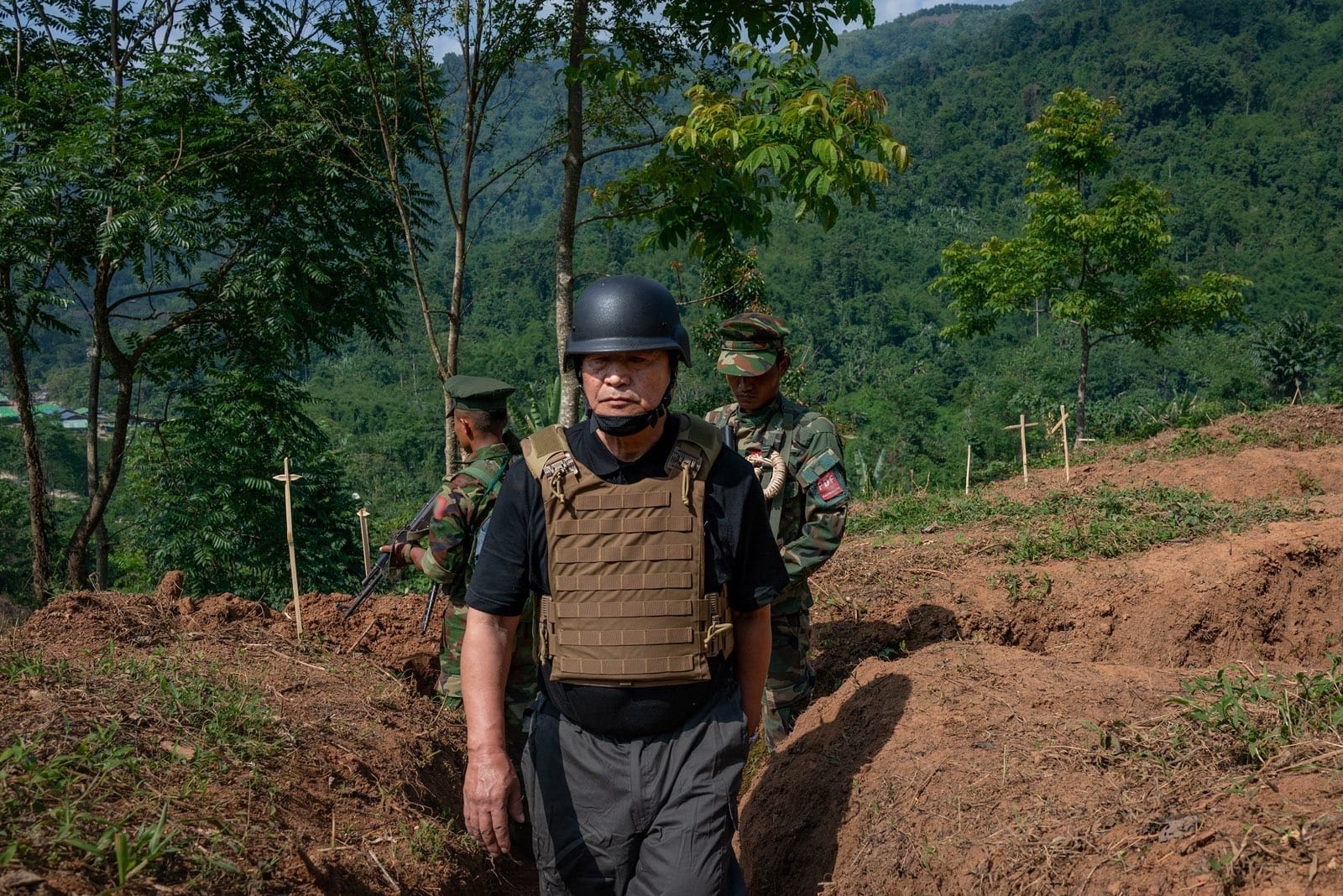
He and his team are based at an undisclosed location in a liberated area. His personal secretary, who is also the permanent secretary of the President’s Office, has observed after working closely with him for more than one and a half years that the hard-working president never complains or delays his tasks, despite never taking weekends or holidays off and maintaining a tight daily schedule.
Duwa Lashi La’s daily schedule starts at 5 a.m. The 72-year-old runs every morning to boost his stamina and concentration for the tasks that await him and which take up the whole day including cabinet meetings, consultations with more than 300 revolutionary forces under the NUG, engagements with international diplomats and reading reports on the situation inside the country and in the rest of the world, including the war in Ukarine.
He is not confined to his office. In May, he visited a frontline camp of a People’s Defense Force (PDF), the NUG’s armed wing, to hear the PDF fighters’ voices personally and better understand their needs.
A young PDF member based in the country’s western Chin State told The Irrawaddy that he felt encouraged to see the images of the acting president together with other PDFs.
“Seeing him together with our comrades was uplifting. I hope the President will visit our camp one day as well,” he said.
The appearance of Duwa Lashi La wearing a military helmet and vest and holding a friendly meeting with frontline resistance fighters contrasted sharply with junta chief Min Aung Hlaing, who hasn’t even made one such visit to his frontline troops, who are giving their lives to satisfy his greed for power and wealth.
Furthermore, when he appears on air giving speeches to the nation, mostly in his Kachin attire, the acting president’s determination and belief in his mission to wipe out the military dictatorship is palpable, not to mention his words. With his stoic and resolute appearance, the stout Duwa Lashi La resembles a boulder—a stark contrast to regime leader Min Aung Hlaing, who appears on air with a shaky voice, looking desperate and restless.
Ko Tayzar San, one of the most prominent of Myanmar’s anti-regime protest leaders, also wrote on his Facebook account that, “Since I have seen the President on broadcasts, I have felt a sense of closeness as with my own uncle, and respect, admire and trust him.”
One of the most remarkable speeches Duwa Lashi La has made was the long-awaited declaration of a people’s defensive war on Sept. 7, 2021, calling on people to “revolt against the rule of the military terrorists led by Min Aung Hlaing in every corner of the country.”
“We will remove Min Aung Hlaing and uproot dictatorship from Myanmar for good,” he said, “and be able to establish a peaceful federal democratic union that fully safeguards equality and is long-aspired by all the citizens.”
The majority of Myanmar’s people, who have endured the regime’s atrocities, heartily embraced the announcement.
Much of Myanmar has already been in revolt since the military coup in February last year. The regime’s deadly crackdowns on protesters have forced many young people to take up arms. Even the regime has admitted that the declaration of war accelerated the ongoing armed struggle against it, with fighting intensifying across the country.
Now the regime has lost control of at least half the country to the NUG’s PDF groups and allied ethnic armed organizations, said the acting president in his state of the union speech on Wednesday, marking the first anniversary of the declaration of war against the junta. His statement was supported by the Special Advisory Council-Myanmar (SAC-M) a group of former UN experts on Myanmar. Their recent analysis finds that the NUG and resistance organizations have effective control over 52 percent of the territory of Myanmar.
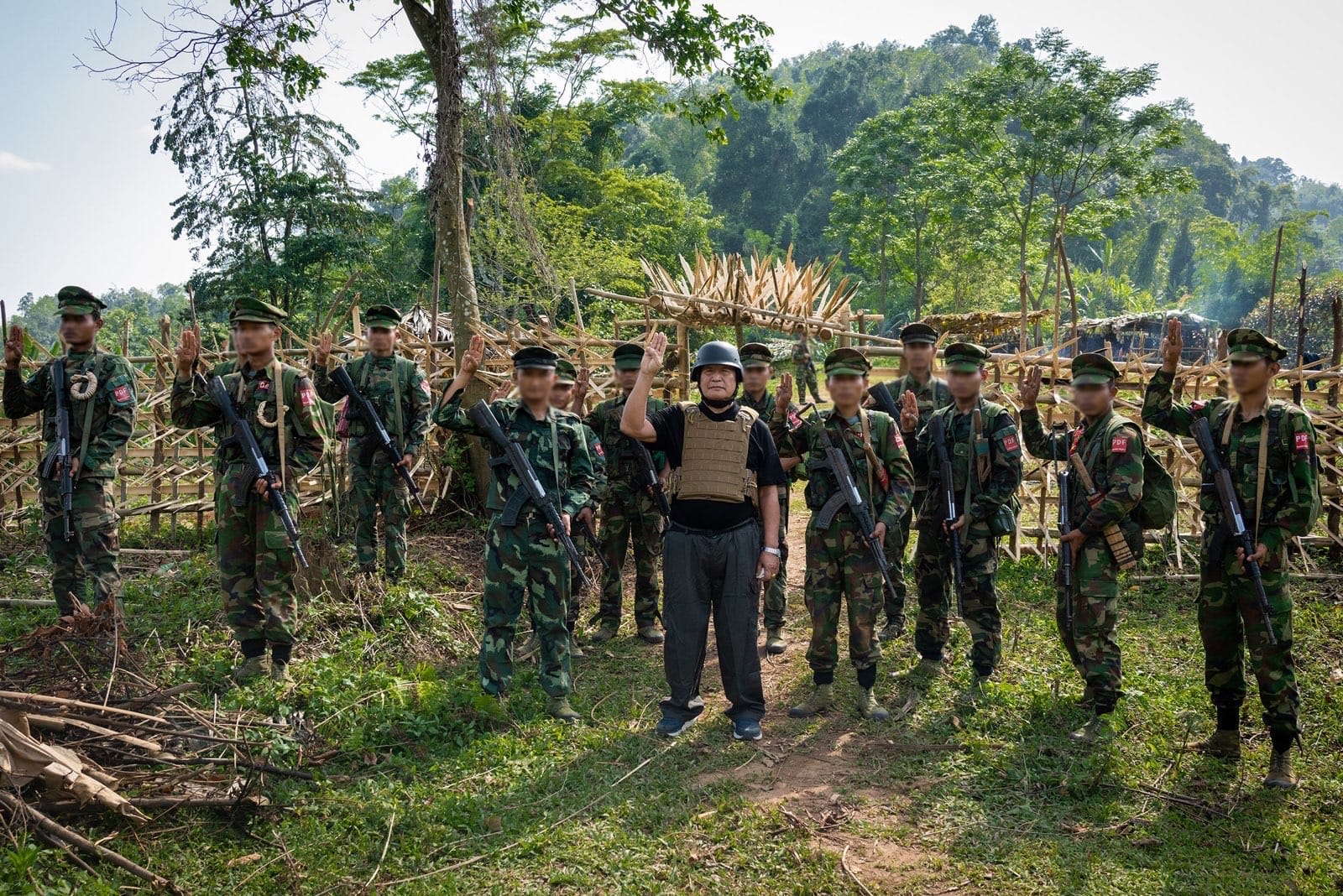
“The National Unity Government is not a shadow government or a government in exile. It is the representative of the people’s revolution and resistance to the military junta, the combined forces of which control the majority of the country,” said Yanghee Lee of the SAC-M.
However, facing off against a well-equipped military using heavy weapons and air strikes against the civilian population, the people of Myanmar need physical assistance—and not just moral support.
Unlike Ukraine, which has received weapons and aid from a number of countries including the US and the UK to combat the Russian military, Myanmar’s armed resistance has received no material assistance from the international community and solely depends on people’s donations. As a result, the NUG is still struggling to fully arm all of its resistance forces across the country.
“I earnestly request technical support, arms and ammunition and finance for the people of Myanmar who are sacrificing their lives to fight against the fascist dictatorship,” Duwa Lashi La told the international community in his speech, while stressing the urgency of his appeal.
Prominent PDF leader Bo Nagar from Sagaing’s Pale Township told The Irrawaddy that he supports the president and NUG leadership and believes they are trying their best to overcome the obstacles they face, such as in providing arms to anti-regime resistance forces.
“One thing for sure is that the President and our government, the NUG, stood up when we were like orphans, and thus we accept their leadership,” he said.
Many elected lawmakers, anti-regime activists, resistance fighters and his compatriots at home and abroad share this positive assessment of Duwa Lashi La.
Prominent protest leader Ko Tayzar San wrote that the “People’s revolution led by people’s president must prevail.”

















